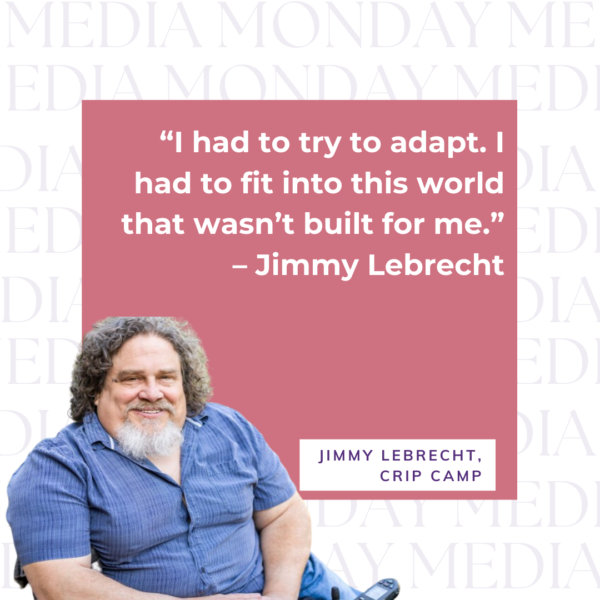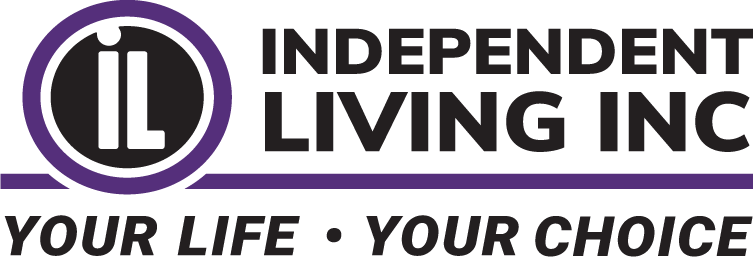Disability Pride Month and Our Collective Responsibility

July 3, 2023
We need to recognize the collective responsibility we all share in promoting diversity, equity, accessibility and inclusion (DEAI) for all people; this month, as it is Disability Pride Month and the 33rd Anniversary of the Americans with Disabilities Act, we focus on our part in DEAI for people with disabilities.
At Independent Living, Inc., we celebrate the accomplishments and contributions of the disability community and aim to foster a society where individuals feel empowered to embrace their identities and advocate for essential change. In this post, we explore various ways individuals, organizations, and lawmakers can play a part in disability pride and foster a more inclusive society.
As a foundation, it is helpful to know the difference between the Independent Living Model and the Medical Model, two opposing approaches to understanding and addressing disabilities. Read our blog post “A Paradigm Shift: Embracing the Social Model of Disability” to learn more about these ideologies.
To uphold the principles of the independent living model, it is essential to actively work towards breaking down societal barriers and promoting Diversity, Equity, Accessibility, and Inclusion (DEAI). One crucial aspect is fostering an inclusive and accessible environment in all areas of life, including physical spaces, communication channels, and digital platforms. Collectively, we can continue to shift society from a space designed for a narrowed scope of individuals, to one without barriers. We urge you to choose at least one item off the list below to uphold yourself, and one to advocate for from others.
- Challenge Your Assumptions: To foster inclusivity, it is vital to place aside assumptions about individuals with disabilities. We must recognize that disabilities and that access needs can vary greatly. We encourage open conversations and active listening to create an environment where individuals feel heard and respected.
- Accessibility is a Priority: Accessibility should be embedded in every aspect of our lives. Making accessibility a fundamental part of all levels of planning demonstrates a commitment to inclusivity and ensures that all spaces, platforms and programs are accessible to all people. By prioritizing accessibility, we remove barriers and create opportunities for meaningful participation; it cannot be an afterthought. As Judy Heumann explained, people with disabilities should not have to feel excited when a place has an accessible restroom; it should be standard. If you see an access barrier, let us know and we will advocate for and support breaking down the barrier.
- Disability is your BUSINESS: Businesses should embrace inclusive hiring practices that go beyond disability-specific roles. People with disabilities, too, have valuable perspectives and talents. We should be creating workplaces that reflect the diversity of our society. How?
- It starts with Disability-Inclusive Hiring Practices: From job postings to interviews, we promote disability-inclusive hiring practices. Providing accessible job postings where people with disabilities know they are encouraged to apply, offering accommodations during the interview process, and ensuring an inclusive workplace environment are key steps towards building a diverse and equitable workforce.
- Consult the Experts: Seeking professional guidance from disability consultants who have a disability allows society to gain insights based on lived experiences. Their expertise contributes to the development of inclusive practices and policies. We emphasize the value of diverse perspectives and encourage organizations to tap into the expertise of disabled consultants. Our CEO, Doug Hovey, and a well-trained and diverse team, work together to offer business Self-Evaluations, a business requirement of the ADA.
- Disability as Part of Diversity Agendas: We believe that disability should be included in diversity agendas. By prioritizing disability, organizations demonstrate their commitment to inclusivity and recognize the unique challenges faced by individuals with disabilities. We work with a number of local businesses to help bolster their DEAI policies and practices; we also continue to expand on our own.
- Legislation: Lawmakers play a vital role in advancing disability rights. We have a designated Systems Advocate on-staff and are working to expand our advocacy work in the coming years through our Strategic Planning Process. Our staff rally in Albany, hold press conferences, join in Disability Equality campaigns, engage other organizations, and share Action Alerts for all supporters to join in advocacy initiatives.
- Authentic Representation in Media: To promote inclusivity, it is essential to prioritize authentic representation of individuals with disabilities in media, TV, film, and advertising. By casting talented people who personally identify as having a disability, and involving people with disabilities in the creative process, such as writers, directors, and crew members, we can ensure that narratives are genuine and diverse. We can advocate for change and challenge the industry to embrace the richness and diversity of disability experiences. Why not cast a person who uses a wheelchair as a character who uses a wheelchair?
- Be a Disability Rights Advocate: Take the Pledge to be an Ally in Disability Rights. As allies, it is essential to educate ourselves about the experiences and challenges faced by the disabled community. We encourage amplifying disabled voices by providing platforms for sharing their perspectives and experiences. Prioritizing accessibility, advocating for disability rights, and standing alongside the disabled community lead to a more inclusive and equitable society.
- Learn: We are humans and we are bound to make mistakes; like disability, that is a part of the human experience. To actively listen, seek to learn, and share what you learn with others will continue to impact how we grow as a society. Discover 33 ways to get involved this month.
Disability Pride Month and the 33rd Anniversary of the Americans with Disabilities Act serve as reminders of our collective responsibility to promote Diversity, Equity, Accessibility, and Inclusion (DEAI) for people with disabilities.
If you are interested in submitting a guest blog, please contact our Chief Advancement Officer via email using the button below.
Together, we can adopt a social model of addressing disability that focuses on removing societal barriers and promoting inclusivity. Upholding the principles of the independent living model requires active efforts to challenge assumptions, prioritize accessibility, embrace disability as a part of diversity, support legislation changes, and to come together as allies ready to listen and advocate. Together, we can foster a more inclusive and equitable society where the rights and dignity of all individuals, regardless of ability, are upheld and celebrated. Let us commit ourselves to action, advocate for change, and stand in solidarity with the disability community as we work towards a future of true Diversity, Equity, Accessibility and Inclusion for all.




